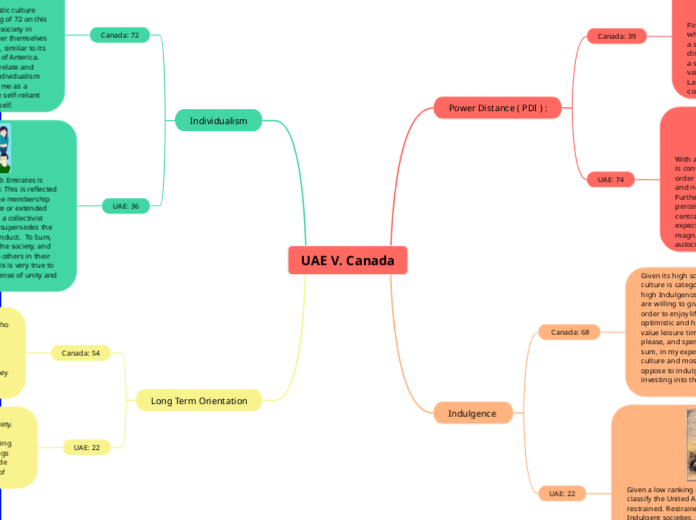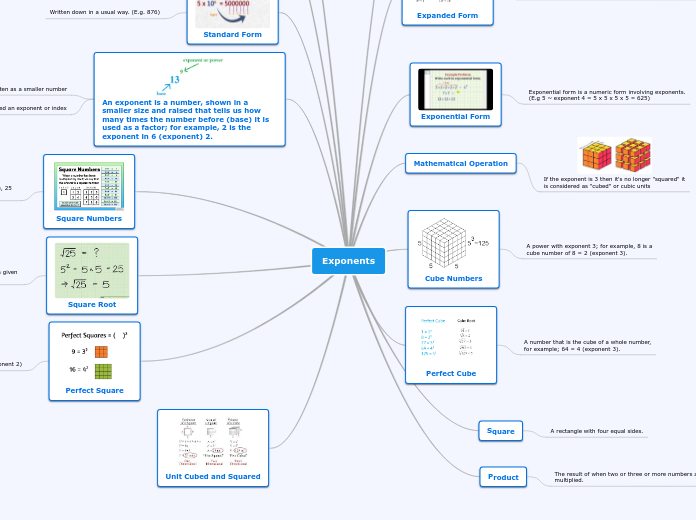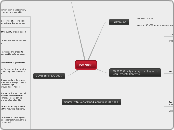af Zeyad Ahmed - Hazel McCallion Sr PS (1549) 1 år siden
114
UAE V. Canada
The comparison between the UAE and Canada highlights significant cultural differences, particularly in terms of power distance and indulgence. Canada, with a low power distance score of 39, emphasizes egalitarianism, clear communication, and interdependence among its people.









